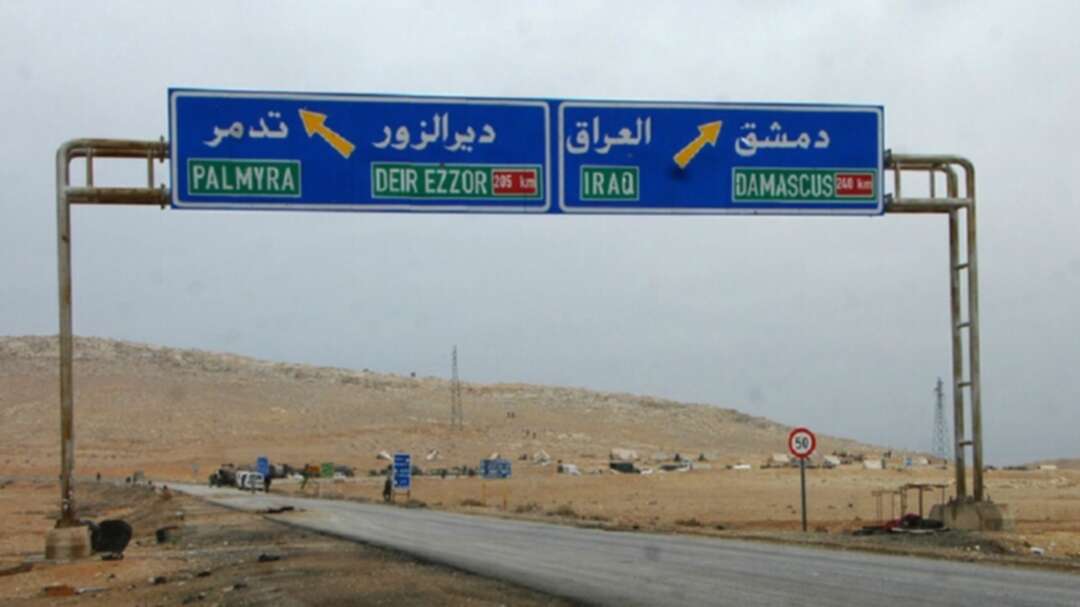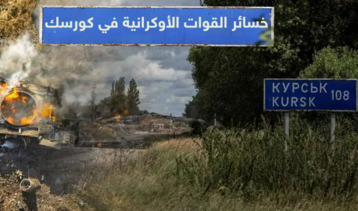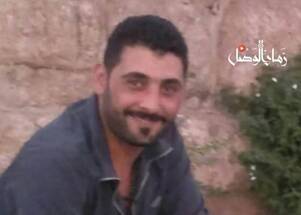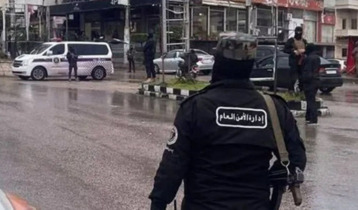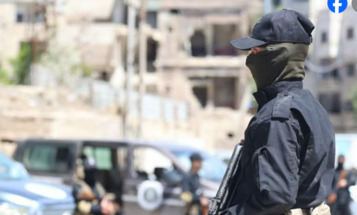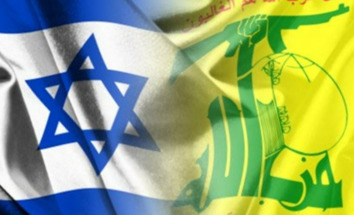-
"Amnesty" reveals: Iranian bombs kill demonstrators in Iraq
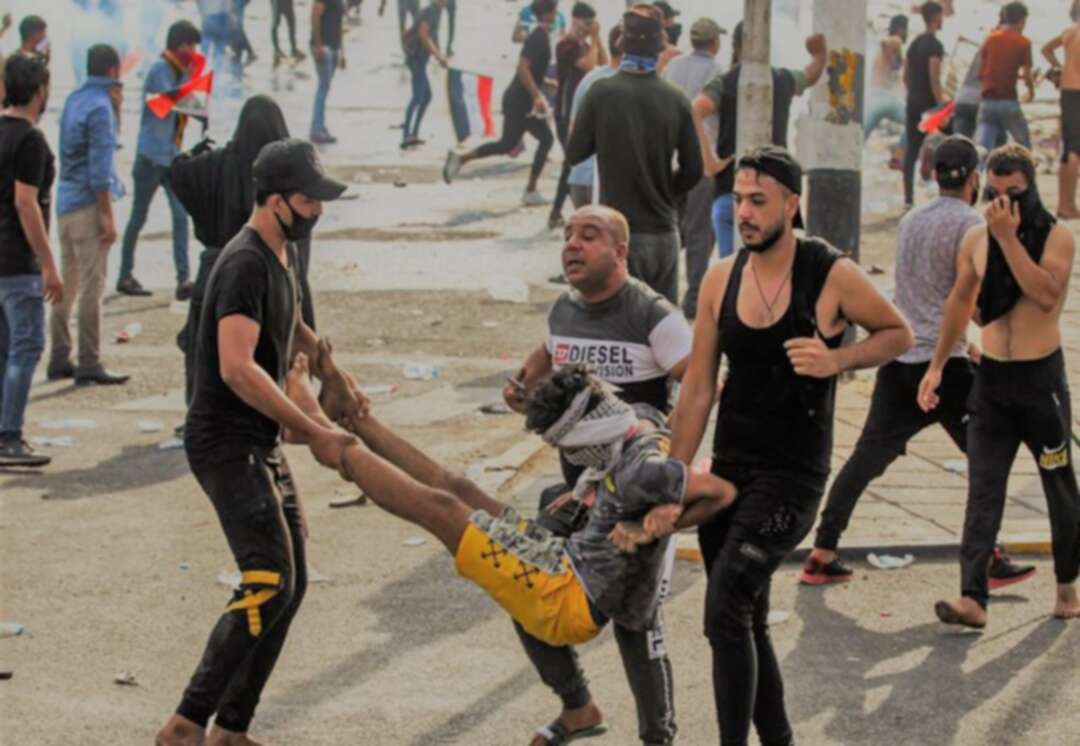
"Amnesty" reveals: Iranian bombs kill demonstrators in Iraq
An Iraqi protester escapes gas bombs
After communicating with several Iraqi sources and conducting researches and investigations on the ground, Amnesty International said that some of the tear gas bombs used by security forces, especially riot police, kill protesters rather than disperse them in Baghdad. Those bombs originated in Iran and Bulgaria.
A previous report published by the organization on 31 October revealed the heinous deaths of many protesters because of these bombs which penetrated their skulls.
The previous report pointed out two models of "deadly bombs" used by Iraqi forces: the 40 mm Serbian M99S manufactured by the Balkan Novotech company and the 40 mm LV CS bombs presumably manufactured by the Bulgarian Arsenal company.
Typical tear gas bombs used by the police are 37 mm in diameter and weigh 25 and 50 grams. They consist of several smaller packages that separate and spread over an area.
In contrast, Serbian and Bulgarian military bombs used by security forces, 40 mm in diameter and documented in Baghdad, consist of a single heavy alloy which is 5 to 10 times heavier and weigh 220 to 250 grams.
Both police and military bombs are fired at a similar burst speed, which means they travel in the air at the same speed. Bombs, which are 10 times heavier, are 10 times more powerful when they hit a protester. That is why they have caused such horrific injuries.
Iranian bombs
The new update, released after further investigation on the bombs and video footage of protesters' injuries, said that in addition to Serbian bombs, "a large part of the deadly projectiles are actually M651 tear gas and M713 smoke bombs." They are manufactured by Iranian Defence Industries Organization (DIO).
It pointed out that the Bulgarian company "Arsenal" sold bombs and other weapons to Iraq including smoke bombs. Such bombs are thrown by hand and were used during the recent protests in Baghdad.
Meanwhile, the organization noted that it does not have information about the identity of the bombers in Baghdad.
Since the investigations concluded that the bombs had caused the death of at least 5 protesters within 5 days, Amnesty International called in its report on the Iraqi authorities to ensure that the riot police and other security forces in Baghdad immediately stop using two types of tear gas, not previously used, that kill protesters instead of dispersing them.
Horrendous fatalities
"All evidence indicates that Iraqi security forces used these military bombs against protesters in Baghdad, apparently targeting their heads or body directly at close range," said Lynn Maalouf, Middle East research director at Amnesty International.
"This has had devastating consequences, in many cases piercing the skulls of the victims, resulting in horrific wounds and death after the bombs having penetrated their heads."
The organization interviewed nine witnesses - including protesters and medical volunteers - who described police use of tear gas canisters near Tahrir Square in Baghdad between 25 to 29 October.
Witnesses described how riot police used tear gas grenades earlier in October, but started firing grenades around 25 October. Deaths and injuries have significantly increased since then.
Several witnesses said that up to 10 bombs, referred to by protesters as "smoke", were fired at the same time in crowded areas emitting smoke that smells distinct from that of any other tear gas bombs they had ever seen.
One of the protesters told Amnesty International, "One of them (smoke) landed near me, and I could barely breathe. I felt like my chest had crashed. Medical volunteers gave me a ventilator. I thought I was going to die. I've suffered from tear gas inhalation before but I didn't feel the same. ”
Another protester told Amnesty International that his friend was killed after he had been hit in the head by a bomb on 28 October. He added that he personally witnessed another death and injury due to the use of those bombs by security forces on 26 October.
He said, "I saw (smoke) hit a man in his waist. It burned and torn his clothes. The bomb came from about 150-200 meters. He fell in place and we dragged him to the tuk-tuk. I saw another man who was badly injured in the shoulder. I didn't see the moment of the crash but he was screaming hard."
Another protester described how a man, who was hit by a bomb that pierced his skull, immediately fell to the ground and smoke came out of his head.
Medical volunteers also described how bombs were fired directly at areas crowded with peaceful protesters, causing fainting or suffocation among the crowds including children.
"They fired directly at the crowds; not in the air, but directly at the people. It’s brutal, " said one participant.
Video footage evidence
Amnesty International announced that it has found several online videos, verified and geolocated. The footage was filmed between October 25 and 29 in areas near Tahrir Square in central Baghdad—a major site of protests.
These videos showed five men who had suffered a severe head injury apparently from the bombs. In a video filmed on 25 October, on the north-eastern side of the Republic Bridge, an unconscious or dead protester can be seen with a visible wound in the back of his skull emitting smoke or gas.
The same effects can be seen in another video filmed on the same day and in the same place - here is another protester with a similar wound to the right of his skull.
Amnesty International has also received CT images from medical personnel in Baghdad confirming deaths from severe head bumping. The horrific injuries in all these images are the result of full bombs dug in the skulls of the victims.
You May Also Like
Popular Posts
Caricature
BENEFIT Sponsors BuildHer...
- April 23, 2025
BENEFIT, the Kingdom’s innovator and leading company in Fintech and electronic financial transactions service, has sponsored the BuildHer CityHack 2025 Hackathon, a two-day event spearheaded by the College of Engineering and Technology at the Royal University for Women (RUW).
Aimed at secondary school students, the event brought together a distinguished group of academic professionals and technology experts to mentor and inspire young participants.
More than 100 high school students from across the Kingdom of Bahrain took part in the hackathon, which featured an intensive programme of training workshops and hands-on sessions. These activities were tailored to enhance participants’ critical thinking, collaborative problem-solving, and team-building capabilities, while also encouraging the development of practical and sustainable solutions to contemporary challenges using modern technological tools.
BENEFIT’s Chief Executive Mr. Abdulwahed AlJanahi, commented: “Our support for this educational hackathon reflects our long-term strategic vision to nurture the talents of emerging national youth and empower the next generation of accomplished female leaders in technology. By fostering creativity and innovation, we aim to contribute meaningfully to Bahrain’s comprehensive development goals and align with the aspirations outlined in the Kingdom’s Vision 2030—an ambition in which BENEFIT plays a central role.”
Professor Riyadh Yousif Hamzah, President of the Royal University for Women, commented: “This initiative reflects our commitment to advancing women in STEM fields. We're cultivating a generation of creative, solution-driven female leaders who will drive national development. Our partnership with BENEFIT exemplifies the powerful synergy between academia and private sector in supporting educational innovation.”
Hanan Abdulla Hasan, Senior Manager, PR & Communication at BENEFIT, said: “We are honoured to collaborate with RUW in supporting this remarkable technology-focused event. It highlights our commitment to social responsibility, and our ongoing efforts to enhance the digital and innovation capabilities of young Bahraini women and foster their ability to harness technological tools in the service of a smarter, more sustainable future.”
For his part, Dr. Humam ElAgha, Acting Dean of the College of Engineering and Technology at the University, said: “BuildHer CityHack 2025 embodies our hands-on approach to education. By tackling real-world problems through creative thinking and sustainable solutions, we're preparing women to thrive in the knowledge economy – a cornerstone of the University's vision.”
opinion
Report
ads
Newsletter
Subscribe to our mailing list to get the new updates!


